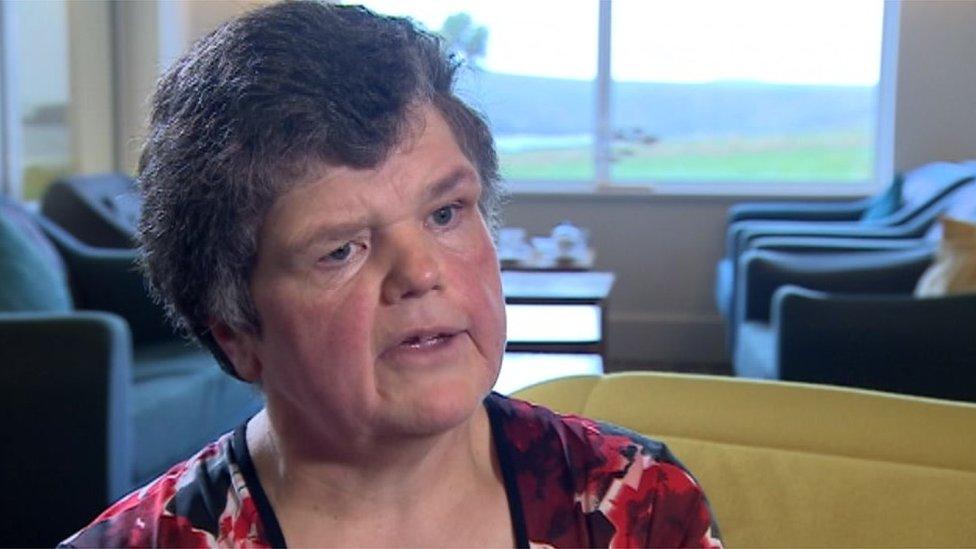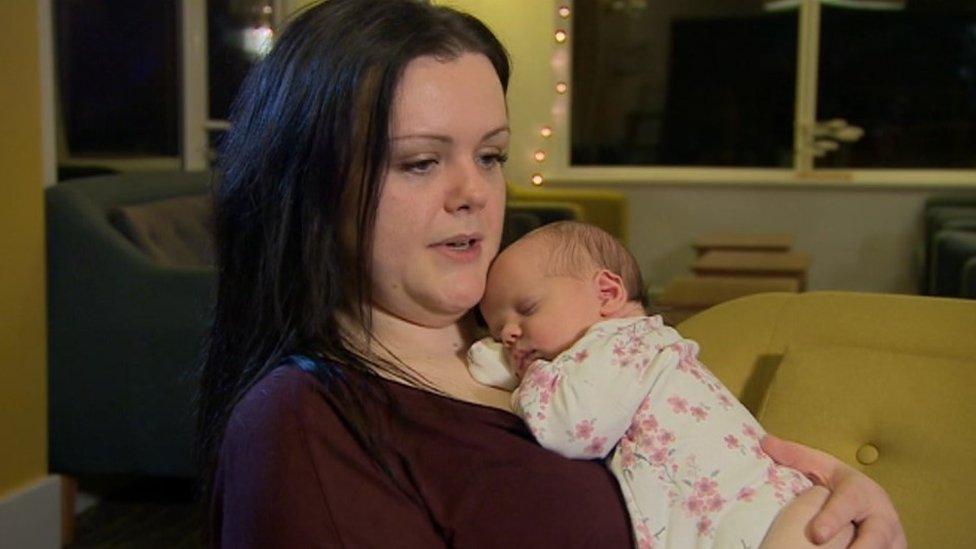Surrogacy: 'I gave birth to my daughter's baby'
- Published
Mother acts as surrogate and carries her daughter's baby
A 55-year-old woman has acted as a surrogate for her daughter and given birth to her child.
Tracey Smith has a condition which means she is unable to carry a baby.
So her mother Emma Miles, from Lampeter in Ceredigion, lost six stone (38 kg) to allow her to carry baby Evie.
She was born last month - and as a review takes place, Tracey has called for a change in the law to make it easier for her to be legally named as her daughter's mother.
Current rules mean Emma is named on the birth certificate and Tracey faces a lengthy court process to change that.

Emma Miles moved to Coventry and lost weight to carry a baby for her daughter
Aged 16, Tracey was told she had Mayer-Rokitansky-Küster-Hauser syndrome (MRKH) - meaning she was born without a womb.
It took her years to come to terms with not being able to carry a child.
But her husband, Adam Smith, persuaded her to begin IVF treatment.
The process involved taking an egg from Tracey and fertilising it with sperm in a laboratory so it could be placed in a surrogate's womb to grow and develop.
Against the odds, it was successful at the first attempt - all she wanted now was a surrogate, and her mother offered to help.
Emma was told she would need to lose six stone (38kg) in weight before attempting treatment, so she quit her job at the local Co-op and moved to Coventry to be near her daughter.
After shedding the pounds, she successfully carried the baby before Evie Siân Emma Smith was born on 16 January 2019, weighing 7lb 7oz.
But in the eyes of the law, Evie's parents are Emma and her husband Robert - not Tracey and Adam.

It will take a number of months before Tracey Smith is legally the mother of her daughter
They have begun legal proceedings for a parental order - which would see them changed to parents at the family court.
Numbers going through this are process rising.
In 2016, 368 parental orders were awarded to enable people using surrogacy to become legal parents - up from 194 in 2012.
"If they have gone through process openly and freely, they have their beautiful child born finally and now they have to go to court and it's quite a lengthy process," said solicitor Rebecca Knight.
"It's six-plus weeks before they can start and then it can take eight to 12 weeks."
The process involves going to the family court so official documents can be updated.
Tracey called the current law "backwards" and "outdated".
However, a Department of Health and Social Care spokesman said it is supporting a review by the Law Commission.
"We have been working in partnership with key stakeholders and healthcare professional bodies to produce a best-practise guide about surrogacy for surrogates and intended parents," he added.
"We encourage those considering entering a surrogacy arrangement to get support in their decision-making, to use our new guidance as a reliable source of information and to carefully consider their options."
Cariad Mam is on BBC Radio Cymru on Thursday 14 February at 12:30 GMT
- Published28 February 2018

- Published17 January 2018
